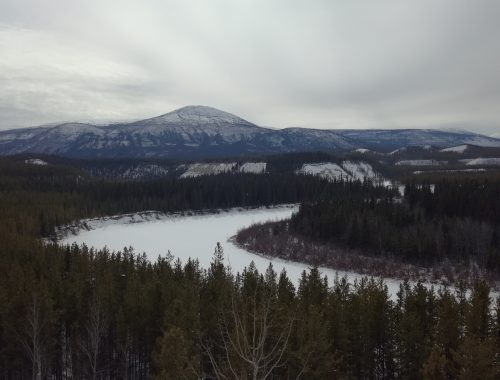Walking Abraham’s Path: Embracing Kurdish Culture in Southeast Turkey

~Home is not where you were born; home is where all your attempts to escape cease (Naguib Mahfuz)~
Hello everyone! My name is Sierra, and I’m a 23 year-old adventure seeker from Alberta, Canada. Before teaching in Poland, I embarked on a 5-day pilgrimage through the Kurdish region of Turkey, and would love to share my experience with you all.
For those who don’t know, Abraham’s Path is a long-distance cultural walking route that traces the journey of the biblical figure Abraham (Ibrahim in Arabic) through the Middle East. The path spans several countries traditionally associated with Abraham’s story, including Turkey, Jordan, Israel, and the Palestinian territories. The route aims to promote cultural understanding, historical awareness, and religious tolerance in this tumultuous and conflict-ridden region by encouraging people to walk in the footsteps of Abraham, a figure largely considered to be the father of Judaism, Christianity, and Islam. I have only traversed the Turkish component but hope to discover more of the path in the near future!
Day 1: Yuvacalı – The Journey Begins!
My journey began in the village of Yuvacalı, a place where time seems to stand still. Nestled among rolling hills and lush fields, Yuvacalı’s simplicity and warmth set the tone for my pilgrimage. The locals, predominantly Kurdish, welcomed me with open arms, sharing stories of their heritage and traditions over cups of strong tea.
Walking through the village, I was struck by the beauty of the landscape and the resilience of the people, considering they were heavily impacted by the earthquake in 2023. The first day was a gentle introduction, allowing me to acclimate to the pace of life on Abraham’s Path and the rhythm of the natural surroundings.

Day 2: Immersing in Kurdish Hospitality
As I continued my pilgrimage, the path led me through small Kurdish villages where I experienced unmatched hospitality. Each stop was marked by genuine kindness and curiosity. In one village, I was invited into a family home for a meal. The warmth of their welcome and the rich flavors of Kurdish cuisine – flatbreads, grilled meats, and fresh vegetables – made me feel like an honored guest.
Walking from village to village, I marveled at the sense of community and the deep-rooted traditions that have been passed down through generations. The stories shared around dinner tables and campfires were windows into the history and soul of the Kurdish people.
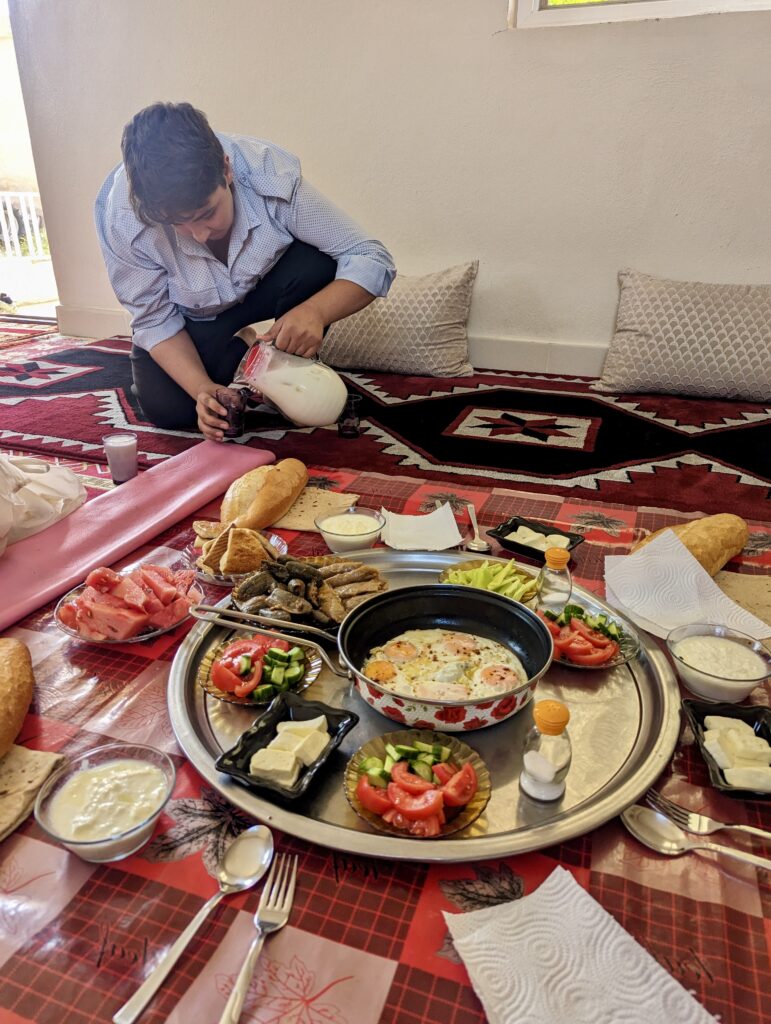
Day 3: Connecting with Nature and History
The third day brought me closer to the natural beauty of southeastern Turkey. The path wound through valleys and across streams, offering stunning vistas and moments of serene reflection. This part of the journey was a reminder of the ancient footsteps that have traversed these lands, from nomadic tribes to the patriarch Abraham himself.
I visited ancient ruins and historic sites that punctuate the landscape, each telling a story of its own. These encounters with history were deeply moving, connecting the dots between past and present, and deepening my appreciation for the region’s cultural heritage.
Day 4: Spiritual Reflection
By the fourth day, the physical exertion of the pilgrimage had given way to a profound sense of spiritual reflection. Walking in the footsteps of Abraham, I felt a powerful connection to the shared roots of these faiths. The journey became a meditation on faith, resilience, and the search for meaning that transcends religious boundaries.
The landscapes shifted from rolling hills to more arid plains, each change in scenery mirroring my internal journey of self-discovery and contemplation. The conversations with fellow pilgrims and locals alike enriched this experience, offering diverse perspectives on faith and spirituality.
Day 5: Arrival in Şanlıurfa
The final day of my pilgrimage brought me to Şanlıurfa, a city steeped in legend and history. Known as the City of Prophets, Şanlıurfa is rumored to be the birthplace of Abraham. The atmosphere was electric with a sense of reverence and historical significance. I even made friends with Hali, the owner of an incredible kebab shop, who gave me some prayer beads and a headscarf as souvenirs! Although we spoke different languages, him Turkish and me English, we had a lovely 4-hour conversation over Google translate, and I will forever be grateful for his kindness towards me.
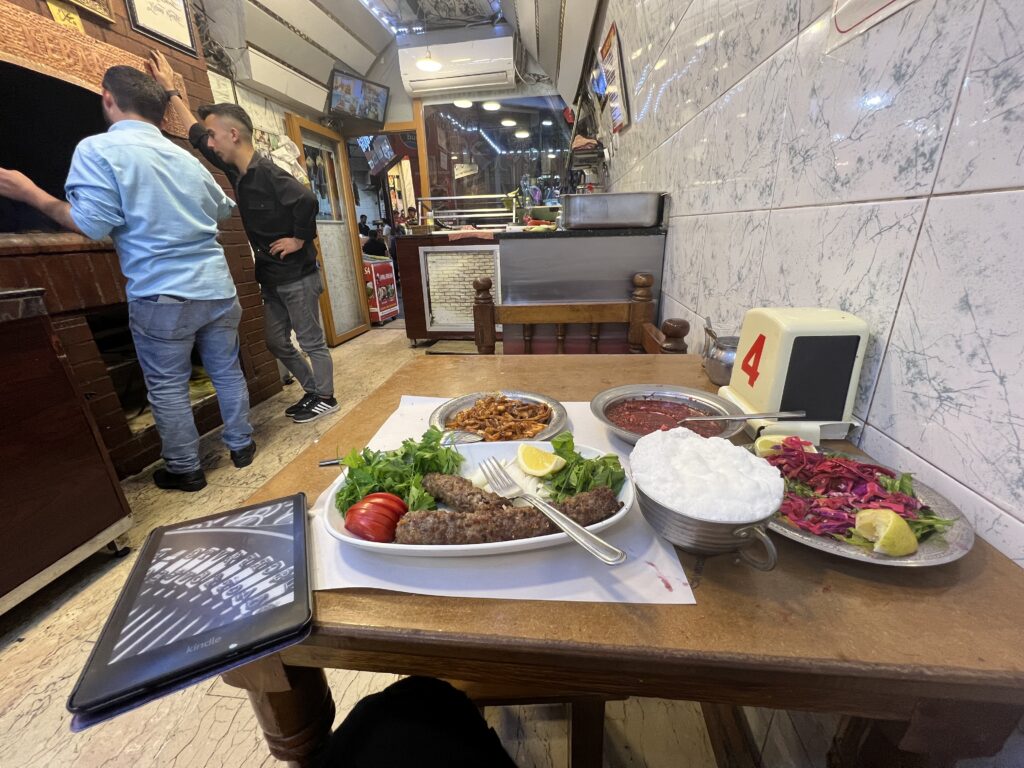
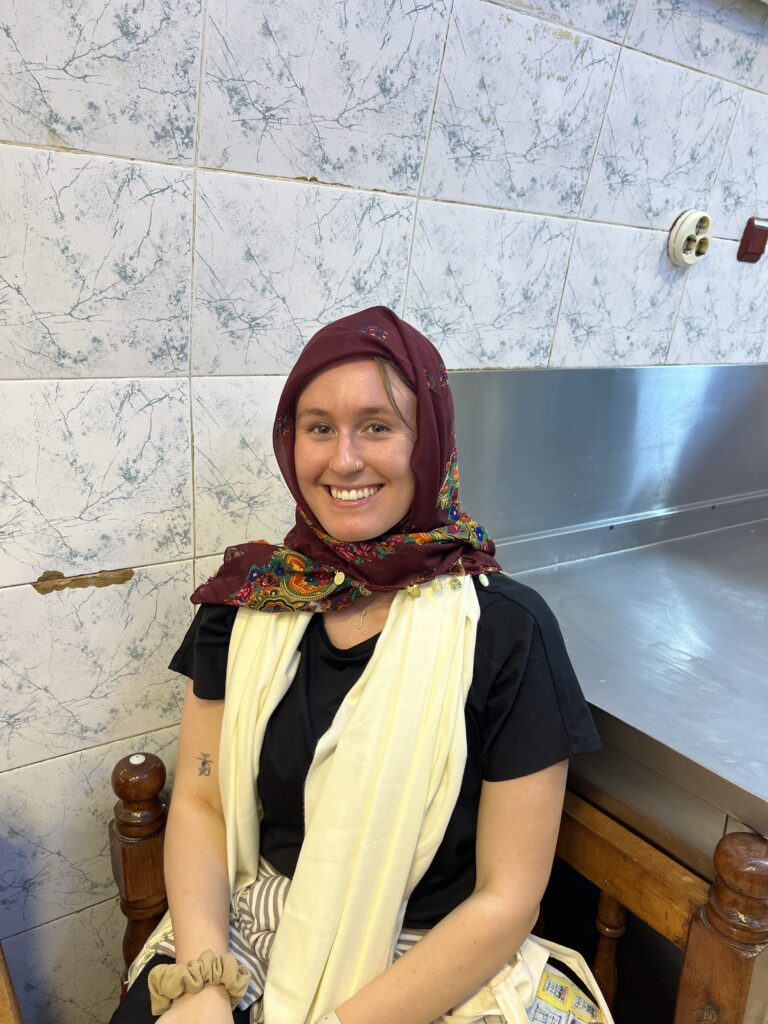
Visiting the sacred sites, such as the Pool of Sacred Fish (Balıklıgöl) and the cave where Abraham is said to have been born, was a profound culmination of my journey. These sites are not only important religious landmarks but also symbols of the enduring legacy of Abraham’s story.

Córka Warszawy, Matka Przemiany
You May Also Like
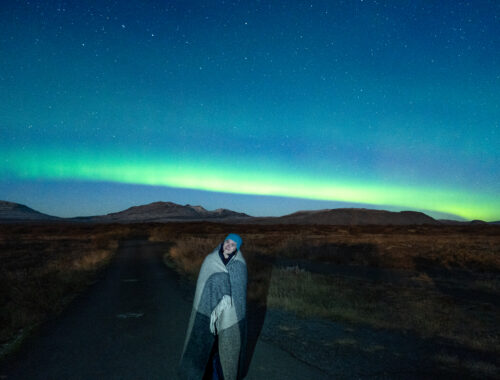
Solo Discoveries
9 November 2024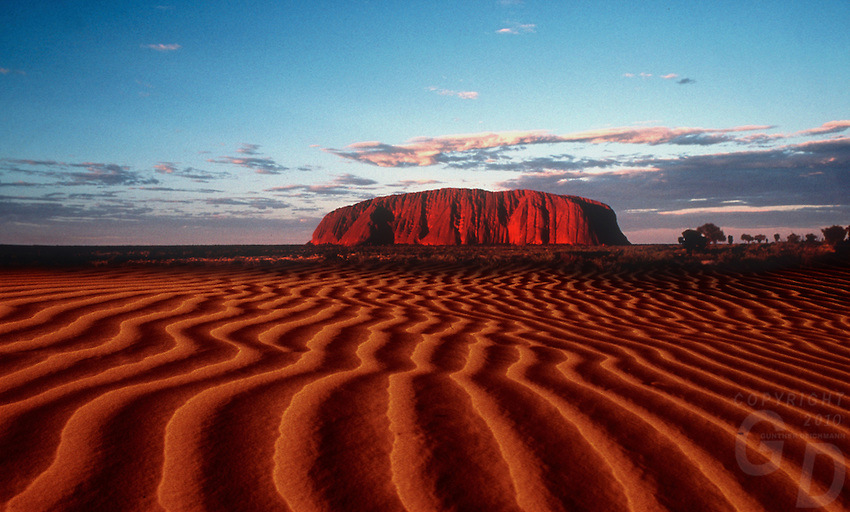
We come from the land down under!
11 April 2014